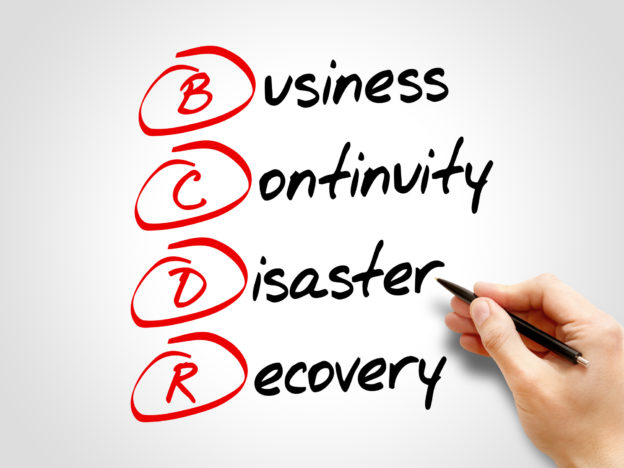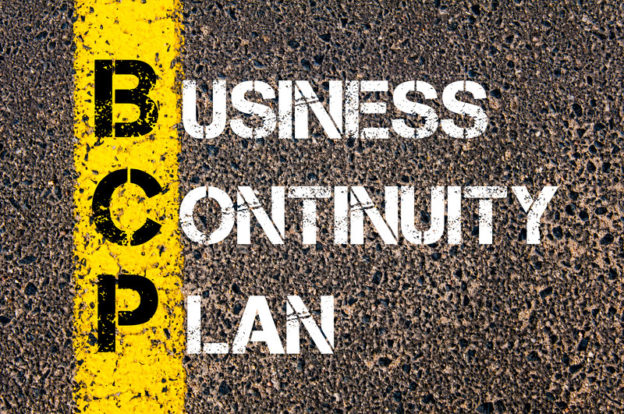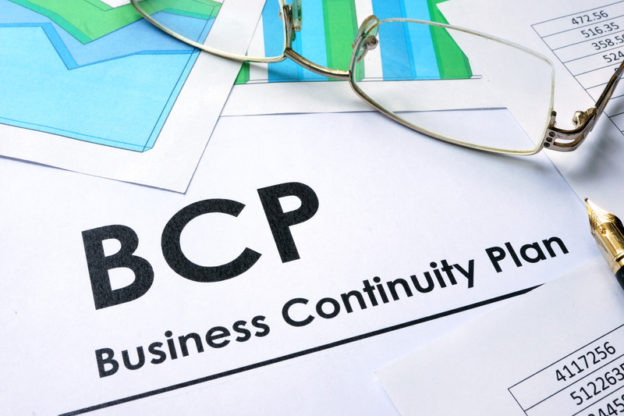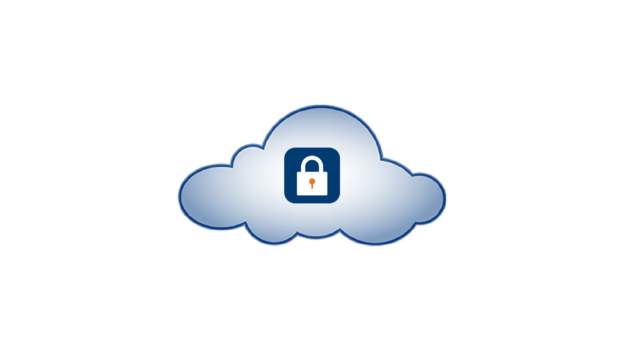Having a solid business continuity plan in place will ensure that your company is better protected fromfuture emergencies or disasters. It can help reduce downtime, minimize financial losses, protectcritical business data and processes, and ultimately help sustain your business. Let’s review how toestablish such a plan 1. Identify All Potential Risks The first step to building a successful business continuity plan is to identify and assess the types ofrisks your business may face. These can include anything from natural disasters like floods or fires tocybercrime, technical malfunctions, supply chain disruption,
Search Results for: continuity

How to Establish a Solid Business Continuity Plan

Business Continuity and Disaster Recovery: What You Need to Know
Over 75% of small business owners claim they don’t have a disaster recovery plan in place. This statistic is quite alarming, especially when you consider the thousands of cyber-attacks on businesses each year. Many studies have determined that almost 40% of businesses that experience a cyber-attack close their doors soon after. Instead of waiting until disaster strikes, now is the time to work on developing a business continuity and disaster recovery plan. Working with IT professionals is the best way to hone in on what this plan needs to succeed.

Why Your Company Needs Business Continuity Data Solutions
Are you always on top of backups and security when it comes to your business? If the answer is yes, you’re half-way there. Now it’s time you learn about business continuity solutions and what they can do for your business. Remember you can never be too careful. Read on to learn more. What Is Business Continuity? Business continuity refers to your company’s ability to remain functional during or after a disaster has occurred. Regardless of the size, all businesses can benefit from a business continuity plan. The first step to

5 Important Continuity Planning Tips for Businesses
Anyone who starts a business is familiar with the concept of a business plan. This essential document is required to gain funding and shift a business from a bare-bones idea to a real-world operation. However, the business plan is just a starting point. If you want a business to remain open and operational, continuity planning is necessary. Continuity planning is the process in which a company identifies key business functions and the resources involved. It examines potential risk factors in order to develop a recovery plan, should the worst occur.

The Importance of a Business Continuity Plan
Every business faces many common challenges. There are also potential risk factors that could cause significant setback, or even utter ruination, should they come to pass. It is enough to keep any business owner awake at night, worrying about the future. Preparedness is the key to mitigating risks, avoiding disaster when possible, and having a plan in place to cope and recover when unavoidable setbacks occur. Whether you are addressing computer security or natural disasters, having a business continuity plan in place is necessary. Hiring external help for this could,

5 Helpful Tips for Business Continuity Planning
There are many occurrences that could disrupt your business, leading to loss of revenue and possibly additional, unplanned expenses. The biggest concern for many businesses used to revolve around inclement weather or natural disasters. These days, data breaches are a more immediate threat. Whatever the cause of disruption, however, a company’s ability to move ahead relies on having a solid business continuity plan in place to address the issue and recover in a timely manner. Here are a few tips to help you create a continuity plan for your operation.
Business Continuity Data Service
Business Continuity Data Service How long can you be without your organizational data? If your answer is anything less than a week, it is time to discuss business continuity for your data. Let’s talk statistics: Disaster 93% of companies that lost their data for 10 days or more during a disaster, filed for bankruptcy within one year of the disaster. The National Archives & Records Administration in Washington 30% of all businesses that have a major fire go out of business within a year and 70% fail within five years.
Business Continuity
Simply backing up your information still leaves significant risk for data loss. Basic backups can be corrupted, stolen, or destroyed in a number of ways. To truly protect your organization and its data, a business continuity solution must be established. If disaster strikes, you could spend days or even weeks recovering your data on a simple backup solution. With our Business Continuity Data Service, you can be back in business within minutes.

Lessons Learned: Electrical Coop Cyberattack
When we think of cyberattacks on electrical coops, we think of taking down our electrical grid. Operational technologies are modernized for efficiency and safety, but your electrical coop’s greater cyberthreat is what plaques other industries and businesses – data theft, fraud, ransomware. Is your IT side keeping up with the criminal’s strategies? In a recent West Monroe survey, 67% of utility leaders cited cybersecurity as their top concern of their converged IT and OT network. What strengthens all businesses is talking about cybersecurity. The Colorado electric coop, DMEA, did just

Gain Flexibility with a Reliable, High Performance Private Cloud
Since 2013, our High-Availability Private Cloud has provided businesses with the reliability and performance of a private cloud, with the control and confidence of an on-premise data center. Take control of your cloud computing. Fast Networking and High-Performance Storage. A dedicated team of engineers maintain and react to alerts and proactively resolve issues to reduce disruption to your network and data performance. Security. The private cloud uses threat intelligence and vulnerability management to provide advanced host and network protection. DDoS Protection, Zero-day Threat Monitoring, Intrusion Detection and Prevention Systems, Endpoint
